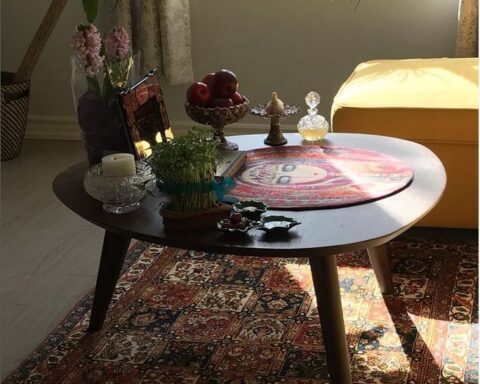Adnan Khan, a Muslim journalist and writer, does not consider himself an activist.
But when the opportunity presented itself to be part of an all-Muslim team of creatives and professionals challenging Muslim stereotypes in pop culture – society’s “common language” – he simply had to seize it.
“I (had) to say yes to it, because there’s lots of really interesting people in this cohort…doing work that’s really positive, that’s really going to benefit everybody,” he told NCM, referring to the Changing Muslim Narratives Lab from the Inspirit Foundation.
“I’m going into it wanting to connect with other Muslim artists and writers – that’s my primary goal: to see how we take ownership over (our narratives).”
Similarly, for Yazmeen Kanji, a Muslim impact filmmaker, it was a chance to show “the breath of Muslim experiences” beyond cartoonish depictions in movies like Aladdin or terrorist tropes in others like Rambo.
“We’re all programmed to see Muslims in a very specific way because of the media that we’ve been fed,” she says – either as social ultra-convservative and culturally backwards; or desert-dwelling bedouin terrorists-in-the-making, a “monolithic” view which became that much more entrenched post-9/11.
“But now we’re at an age where Muslims have finally been able to get into positions in the media, so we need to listen to the people that are finally telling their own stories.”
Creating infrastructure
Since August, the 17 creatives/professionals and three facilitators have been holding bi-weekly virtual meetings to find collective ways of smashing those stereotypes while exploring the question: “What does Muslim identity look like?”
But that’s a lofty question, says program manager, Angie Balata, because there simply has not been a space where “Muslims have gathered to discuss these things in this kind of format” – especially such a diverse group in terms of gender and sexuality, cultural and linguistic backgrounds, and even professional paths.
“So, we broke down the idea of ‘narrative’ into its very core, and that is a narrative system,” Balata said.
“What is the value system that brings people together? What is the thing that connects us from which we can then start building bigger narratives?”
The first step was identifying their commonalities in order to “recognize, unpack, identify and overcome” what Balata calls the “internalized Islamophobia” many have as a result of a life-time of consuming pop culture seeped in it.
They do this through conversations with each other as well as with invited and accomplished guests from different arts and culture sectors in order to explore the possibilities of “what can be” done once the mold is broken.
But it’s more than just abstract conversations, says Sadia Zaman, the Foundation’s CEO. It’s building the physical infrastructure to allow these conversations to take place in the first place, which is crucial for systemic change to occur, she says.
“One of the foundational pieces of fighting systemic issues is actual infrastructure: you need to have something in place that allows people to come together … before you could actually get to the next step,” she adds, noting that for most if not all of the cohort members “this might be their first time they’ve been in a room with other Muslim creatives in Canada.”
Being Seen
In February, the Black Screen Office released the Being Seen report, a first-of-its-kind look into the ways underrepresented communities see themselves affected by their (mis)representation on screen and about what it means to have “authentic and representative content.”
Similarly to the Foundation’s Lab, the report found that “for many participants… this was the first time that anyone had asked them how they felt about what they were seeing on Canadian screens or any screens.”
“It was the first time they had met people like themselves and had conversations with other people who shared their concerns and their lived experiences. It was impactful and even sometimes life changing. They frequently saw more in common with each other than differences.”
After 400 interviews with a diverse group of marginalized communities, some of the main themes identified were missing complexity of storylines and characters; the importance of authentic casting and what can be done to achieve it; and the impact of poor or missing representation on Canadian audiences.
The report provides specific “Directives” for broadcasters, digital platforms, streaming services, funders and distributors in order to “provide a common response to Creators and Producers.”
“This will ensure consensus and early, thoughtful incorporation of the Directives, rather than trying to incorporate them prior to a project hitting the market,” it notes, adding that it “will take many structural interventions, and the will to enact them, to dismantle the current structures and build this new world.”
Shifting narratives
The lab is the first step towards that new world, with cohort members expected to come out of it with a better understanding of how to challenge current narratives in their own work while having an established network to help reach wider audiences each time.
“Now we have to be on top of our agency with these stories, we have to create them, we have to push them,” Khan says.
“Hopefully, we all go back to our independent practice, and feel stronger; feel like we have a community that can listen to us and that we can bounce ideas off.”
More bluntly, the Lab is a first step towards taking the power back, Zaman says, by challenging the power dynamics that have perpetuated those stereotypes in the first place.
“At the end of the day, representation – which is usually what we mean when we say diversity – is irrelevant without power,” she stresses.
“Unless you can actually control resources, greenlight projects, have social capital that allows you to have conversations at the highest level, diversity in itself is never enough.”
And yet, as Khan notes, “there’s no production company, no publishing house, no boardroom that has people of colour in several positions of power.”
Last November, the Canadian Association of Journalists released a groundbreaking report showing that “almost half of all Canadian newsrooms exclusively employ white journalists.”
Until that begins to change industry-wide, Khan says, narratives will remain at the whim of the largely white “gatekeepers…apparently leading the charge to diversify stories.”
“But they’re looking for stories that they understand (and) have seen before. So, we’re getting told these cliches about tolerance, about multiculturalism, about what we are.”
A BIPOC moment
While that won’t change overnight, the idea is to strike while the iron is hot, says Balata, and to build those networks with anyone who will listen.
“Whoever I find as an ally, I will make friends with them and I will tell them about everything Muslim,” she says, laughing but serious.
“I think we have a moment here, and it’s not just a Muslim moment but a BIPOC moment. I think we have an opportunity to maybe change things while people are very open to wanting to change things.”
Full disclosure: Sadia Zaman, Inspirit’s CEO, is a member of NCM’s Advisory Council.
Fernando Arce is a Toronto-based independent journalist originally from Ecuador. He is a co-founder and editor of The Grind, a free local news and arts print publication, as well as an NCM-CAJ member and mentor. He writes in English and Spanish, and has reported from various locations across Canada, Ecuador and Venezuela. While his work in journalism is dedicated to democratizing information and making it accessible across the board, he spends most of his free time hiking with his three huskies: Aquiles, Picasso and Iris. He has a BA in Political Science from York University and an MA in Journalism from Western University.





